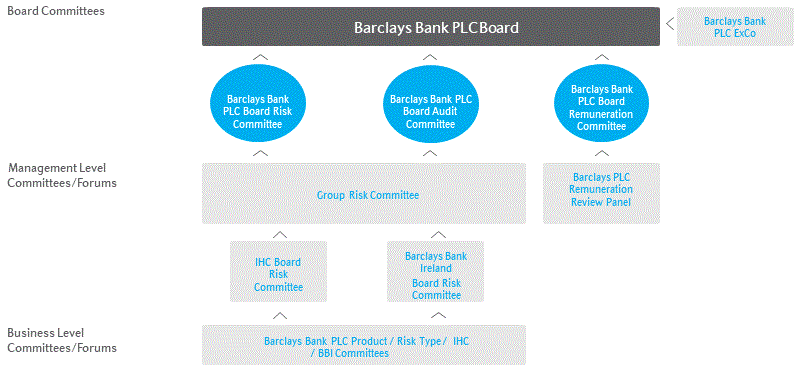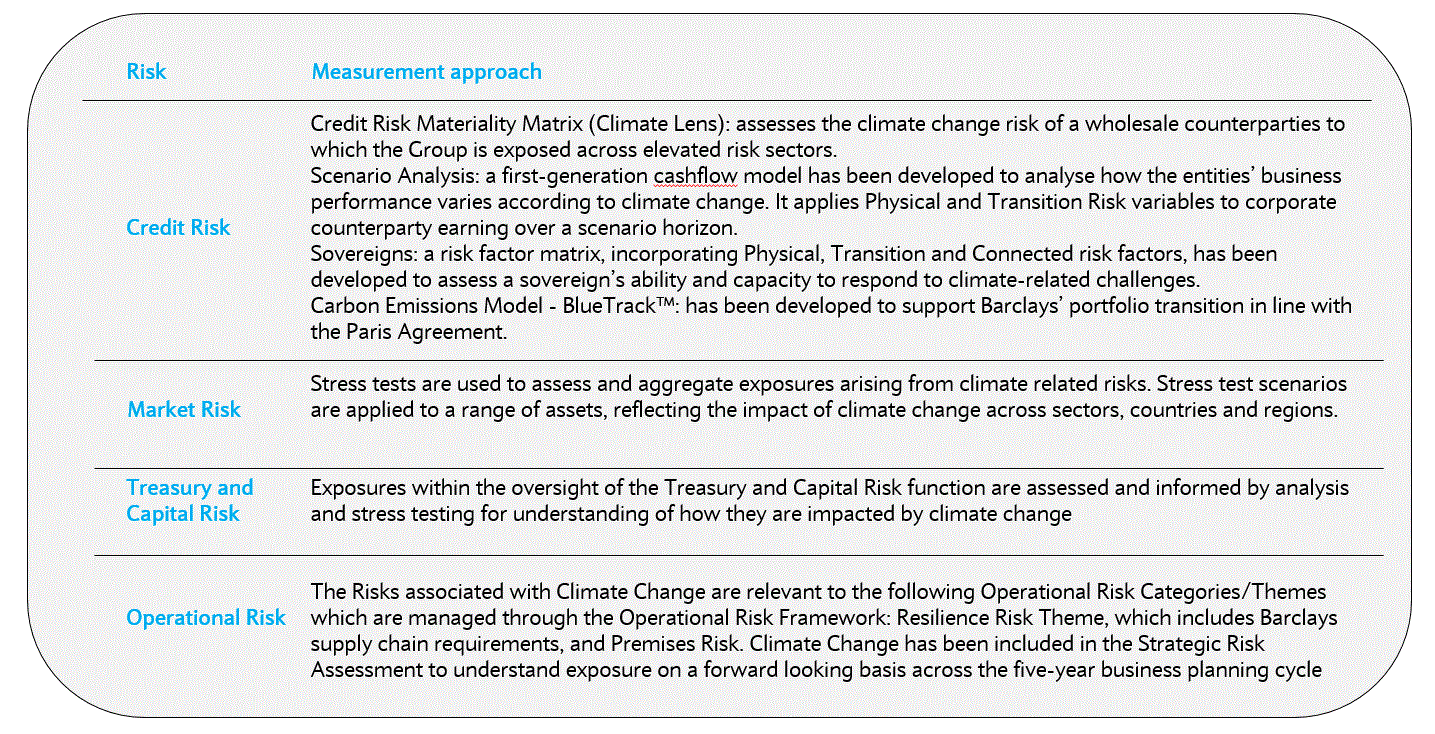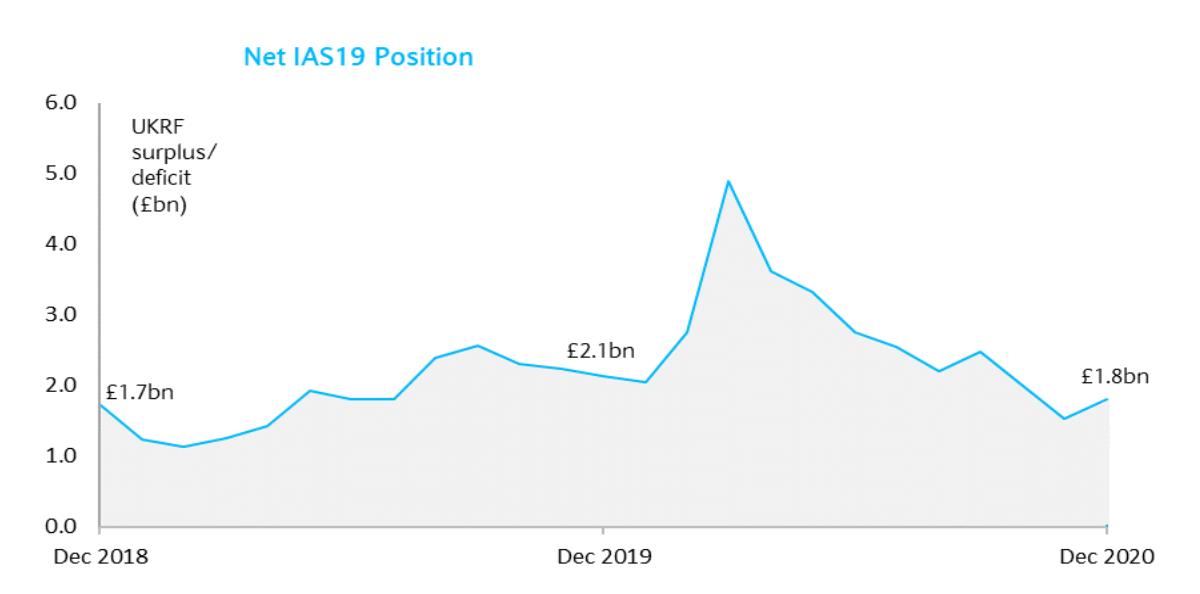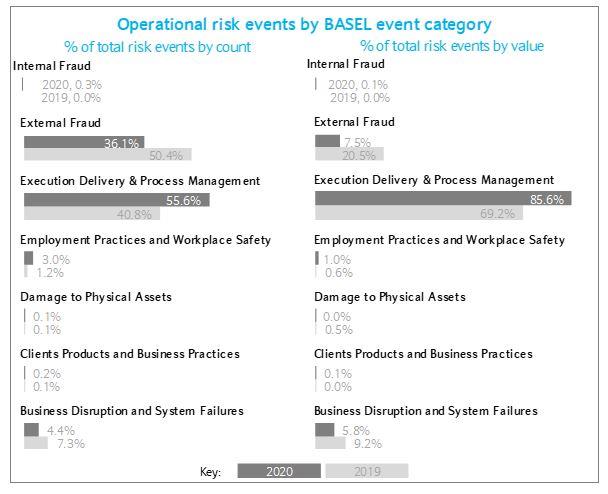Barclays
Bank
PLC
2020
Annual
Report
on
Form
20
-F
16
Directors
The
list
of
current
Directors
of
the
Company
can
be
found
in
the
Corporate
Governance
Statement.
Changes
to
Directors
during
the
year
and
up
to
the
date
of
signing
this
report
are
set
out
below.
Name
Role
Effective
date
of
appointment/resignation
Appointed
7
February
2020
Resigned
30
September
2020
*Tushar
Morzaria
was
appointed
as
an
Executive
Director,
pending
regulatory
approval,
on
25
September
2019.
Regulatory
approval
was
given
on
7
February
2020,
the
date
on
which
his
formal
appointment
became
effective.
Qualifying
third
party
indemnity
provisions
(as
defined
by
section
234
of
the
Act)
were
in
force
during
the
course
of
the
financial
year
ended
31
December
2020
for
the
benefit
of
the
then
Directors
and,
at
the
date
of
this
report,
are
in
force
for
the
benefit
of
the
Directors
in
relation
to
certain
losses
and
liabilities
which
they
may
incur
(or
have
incurred)
in
connection
with
their
duties,
powers
or
office.
In
addition,
the
Company
maintains
Directors’
&
Off
icers’
Liability
Insurance
which
gives
appropriate
cover
for
legal
action
brought
against
its
Directors.
Qualifying
pension
scheme
indemnity
provisions
(as
defined
by
section
235
of
the
Act)
were
in
force
during
the
course
of
the
financial
year
ended
31
December
2020
for
the
benefit
of
the
then
directors;
and
at
the
date
of
this
report
are
in
force
for
the
benefit
of
directors
of
Barclays
Pension
Funds
Trustees
Limited
as
trustee
of
the
Barclays
Bank
UK
Retirement
Fund,
Barclays
Capital
International
Pension
Scheme
(No.1)
and
Barclays
PLC
Funded
Unapproved
Retirement
Benefits
Scheme.
The
directors
of
the
trustee
are
indemnified
against
liability
incurred
in
connection
with
the
trustee’s
activities
in
relation
to
the
aforementioned
schemes.
The
Barclays
Bank
Group
did
not
give
any
money
for
political
purposes
in
the
UK,
the
EU
or
outside
the
EU,
nor
did
it
make
any
political
donations
to
political
parties
or
other
political
organisations
or
to
any
independent
election
candidates,
or
incur
any
political
expenditure
during
the
year.
Details
of
any
political
contributions
made
by
the
wider
Barclays
Group
can
be
found
in
the
Barclays
PLC
Annual
Report
2020
available
at
home.barclays/annualreport.
The
Barclays
Group
focuses
on
addressing
environmental
issues
where
it
felt
that
there
is
the
greatest
potential
to
make
a
difference.
As
the
global
effort
to
tackle
climate
change
grows,
the
Barclays
Group
is
moving
rapidly
to
take
a
leading
role
in
contributing
to
the
transition
to
a
low
carbon
economy.
In
March
2020,
Barclays
Group
set
out
its
ambition
to
be
a
net
zero
bank
by
2050.
In
November
2020,
on
its
way
to
achieving
that
ambition,
Barclays
Group
set
out
the
methodology
and
targets
that
begin
to
align
the
emissions
Barclays
finances
with
the
Paris
Climate
Agreement.
More
information
is
set
out
in
the
Barclays
Group
Environmental
Social
Governance
Report,
published
alongside
the
Barclays
PLC
Annual
Report
2020
available
at
home.barclays/annualreport.
Barclays
Group
focusses
on
managing
its
own
carbon
footprint
and
reducing
its
absolute
carbon
emissions,
developing
products
and
services
to
help
enable
the
transition
to
a
low-carbon
economy
and
managing
the
risks
of
climate
change
to
its
operations,
clients,
customers
and
society
at
Barclays
Group
invests
in
improving
the
energy
efficiency
of
its
operations
and
offsets
the
emissions
remaining
through
the
purchase
of
carbon
credits.
Barclays
Group
also
has
a
long-standing
commitment
to
managing
the
environmental
and
social
risks
associated
with
its
lending
practices,
which
is
embedded
into
its
risk
management
processes.
A
governance
structure
is
in
place
to
facilitate
clear
dialogue
across
the
business
and
with
suppliers
around
issues
of
potential
environmental
and
social
risk.
For
more
information
about
how
Barclays
Group’s
is
helping
to
tackle
climate
change
please
see
the
Barclays
PLC
Annual
Report
2020
available
at
home.barclays/annualreport.
Disclosure
of
global
greenhouse
gas
emissions
is
done
at
a
Barclays
Group
level
with
information
available
in
the
Barclays
PLC
Annual
Report
2020
available
at
home.barclays/annualreport
with
fuller
disclosure
available
on
the
Barclays
Group
website
at
home.barclays.com/esg.
Engagement
with
customers,
suppliers
and
others
in
a
business
relationship
with
the
Company
Our
engagement
with
suppliers
is
important.
The
Directors
have
regard,
via
management
oversight,
to
the
need
to
foster
business
relationships
with
suppliers
and,
as
such,
engage
with
them
to
ensure
adherence
to
the
Barclays’
Supplier
Code
of
Conduct
and
Supply
Control
obligations
which
cover
our
expectations
of
suppliers.
Adherence
is
confirmed
through
pre-contract
attestation.
Further,
Barclays
is
a
signatory
to
the
Prompt
Payment
Code
in
the
UK,
committing
to
pay
our
suppliers
within
clearly
defined
terms.
For
further
information
on
managing
our
supply
chain,
please
see
our
ESG
Report
at
home.barclays/esg
.
Branches
and
Country-by-Country
reporting
The
Barclays
Bank
Group
operates
through
branches,
offices
and
subsidiaries
in
the
UK
and
overseas.
Those
branches
are
in
a
number
of
different
jurisdictions
including
in
Hong
Kong,
Singapore
and
New
York.
The
Company
is
exempt
from
publishing
information
required
by
The
Capital
Requirements
(Country-by-Country
Reporting)
Regulations
2013
as
this
information
is
published
by
its
parent
Barclays
PLC.
This
information
is
available
on
the
Barclays
website;
hone.barclays/annualreport.
In
the
ordinary
course
of
business,
the
Barclays
Bank
Group
develops
new
products
and
services
in
each
of
its
business
divisions.










